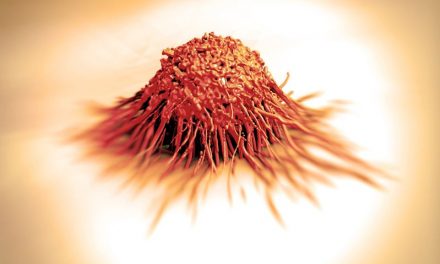Story at-a-glance
- The FDA and the Academy of Nutrition and Dietetics (AND) are beholden to industry and put the interests of junk food giants over public health
- WHO’s International Agency for Research on Cancer (IARC) classified aspartame as “possibly carcinogenic to humans,” but WHO’s expert JECFA committee still says it can be safely consumed
- At least six out of 13 JECFA panel members have ties to ILSI, a longtime Coca-Cola front group
- A symbiotic relationship exists between AND, the AND Foundation and junk food corporations like Coca-Cola, PepsiCo, General Mills and Kraft
- Trade group American Beverage launched a coordinated campaign to downplay WHO’s aspartame-cancer finding by paying registered dietitians and other health professionals to promote aspartame on social media
Foods that are approved by the U.S. Food and Drug Administration are passed off as the gold-standard or, at the very least, safe. Meanwhile, the Academy of Nutrition and Dietetics (AND), which claims to be “your source for science-based food and nutrition information,”1 is deemed the “authority” on food policy and the development of U.S. dietary guidelines.
But if you rely on FDA and AND seals of approval to guide your food choices, you’re likely to be led astray. Both entities — and other preeminent public health organizations — represent textbook cases of corporate capture. Beholden to industry, they’re unable to represent the best interests of the American, and global, public. Just look at what happened with aspartame.
WHO Sends Mixed Messages About Aspartame
In May 2023, the World Health Organization released a new guideline advising not to use non-sugar sweeteners (NSS), i.e., artificial sweeteners, for weight control because they don’t offer any long-term benefit in reducing body fat in adults or children.2
What’s more, the systematic review suggested “potential undesirable effects from long-term use of NSS, such as an increased risk of type 2 diabetes, cardiovascular diseases, and mortality in adults.” Bladder cancer was also among the potential risks.3
Then, July 14, 2023, WHO released its hazard and risk assessments of aspartame,4 in which WHO’s International Agency for Research on Cancer (IARC) classified aspartame as “possibly carcinogenic to humans.” I warned about aspartame’s cancer-causing potential in an article I wrote for The Huffington Post, now HuffPost, back in 2010.5 It’s since been deleted — but you can see just how long this danger has been known.
U.S. Right to Know (USRTK) has also compiled decades of science showing that aspartame poses serious health risks.6 The Joint WHO and Food and Agriculture Organization’s Expert Committee on Food Additives (JECFA), which was in the process of updating its aspartame risk assessment,7 however, released a recommendation that doesn’t line up.
Despite its possible carcinogenicity, JEFCA reaffirmed that aspartame could be safely consumed at an acceptable daily intake of 40 mg/kg of body weight.8
Coca-Cola Sways WHO Aspartame Review
“Why the split decision?” asked Gary Ruskin, USRTK executive director. “One possible answer: at least six out of 13 JECFA panel members have ties to the International Life Sciences Institute (ILSI), a longtime Coca-Cola front group. Both the chair and vice chair of the JECFA panel have ties to ILSI.”9
ILSI is a nonprofit organization founded by former Coca-Cola senior vice president Alex Malaspina.10 Coca-Cola has also contributed funds to ILSI. According to a case study published in Public Health Nutrition:11
“Previous research shows that ILSI has been an important vehicle for Coca-Cola to exert influence around the world, on policy, researchers, events, policymakers and practitioners, taking a role in promoting messaging that can further commercial interests.
ILSI supported 30 of the events we identified. Sometimes, ILSI offered to act as a conduit to reimburse public health scientists through Coca-Cola by having them deliver presentations with selected topics.”
ILSI has been exposed as a shill for the junk food industry, and internal documents revealed ILSI embedded itself in public health panels across Europe and the United Nations in an effort to promote its own industry-focused agenda to raise profits at the expense of public health worldwide.12
With Coca-Cola behind ILSI, and aspartame being the sweetener used in Diet Coke, anyone with ties to ILSI should not have been involved in the JECFA aspartame ruling. Yet, here we are. Ruskin says:13
“JECFA panelists ruling on a chemical that is important to Coca-Cola should not be affiliated with a longtime Coca-Cola front group. This is an obvious conflict of interest. Because of this conflict of interest, JECFA’s conclusions about aspartame are not credible, and the public should not rely on them.”
US Nutrition Guidelines Are Corrupted by Corporations
In the video above,14 James Li, host of 51/49 with James Li and a contributor to Breaking Points With Krystal and Saagar, also details the blatant conflicts of interest that have sabotaged Americans’ health by corrupting dietary advice and guidelines. This includes corporate capture of nutrition professionals via AND.
USRTK, along with public health scholars, conducted a five-year investigation into AND’s uncomfortably close ties to junk food manufacturers like Coca-Cola, PepsiCo, General Mills and Kraft, among others.15
Published in Public Health Nutrition in October 2022, the analysis included documents from 2014 to 2020 obtained through freedom of information requests.16 A symbiotic relationship between AND, the AND Foundation (ANDF) and corporations was revealed, with industry giants assisting AND and its foundation with financial contributions.
Not surprisingly, AND acts as a pro-industry voice as a result,17 one that cannot, in this capacity, represent the best interests of Americans’ health. According to the study:18
“The AND, AND Foundation (ANDF) and its key leaders have ongoing interactions with corporations. These include AND’s leaders holding key positions in multinational food, pharmaceutical or agribusiness corporations, and AND accepting corporate financial contributions.
We found the AND has invested funds in corporations such as Nestlé, PepsiCo and pharmaceutical companies, has discussed internal policies to fit industry needs and has had public positions favoring corporations.”
Academy of Nutrition and Dietetics Supports Aspartame
Given this information, can you guess what the Academy of Nutrition and Dietetics had to say about aspartame? While announcing that IARC had classified the artificial sweetener as “possibly carcinogenic to humans,” it stood behind it nonetheless, stating in a news release:19
“The Academy will continue to support the recommendations of registered dietitian nutritionists, the food and nutrition experts, who accept the use of non-nutritive sweeteners, including aspartame, by their patients and clients within accepted daily limits until further evidence can be generated … No one ingredient or food increases cancer risk.”
It’s not as though aspartame is an essential nutrient the body needs. It’s a food additive that can easily be excluded from the diet — one that may cause cancer. So why would any nutrition authority suggest people take the risk of consuming it?
The fact is that the junk food culture runs deep at AND, beginning in academic institutions and continuing on through regular appearances at corporate conferences and direct monetary contributions.
From 2011 to 2017, AND received more than $4 million in contributions from junk food and ultraprocessed food companies like Coca-Cola, PepsiCo, Nestlé, Hershey, Kellogg’s, and Conagra.20 AND also invested in junk food industries, supporting the very corporations at the root of failing public health in the U.S. In one example from 2015 and 2016, AND had stock in PepsiCo, Nestlé and J.M. Smucker valued at more than $1 million.21
“You could argue free market but, funny enough, emails once again obtained through FOIA revealed that some of the Academy’s leadership were aware that this presented a potential conflict of interest,” Li says.22
In the video, he presents an email from AND spokesperson Donna Martin, who wrote, “Everything looks good to me. The only flag that I saw was that PepsiCo is one of our top 10 stocks. I personally like PepsiCo and do not have any problems with us owning it but I wonder if someone will say something about that.”
“Well Donna, it’s not a great look,” Li says.23 Additional egregious findings include the following, reported by USRTK:24
- AND received millions of dollars from companies in the food, pharmaceutical and agribusiness industries. In exchange for these gifts, AND “had policies to provide favors and benefits in return.”
- AND leaders have acted as employees of or consultants for multinational food, pharmaceutical and agribusiness corporations.
- AND discusses policies to “fit the needs of its food, agribusiness and pharmaceutical industry sponsors.”
Registered Dietitians Paid to Promote Aspartame’s ‘Safety’
There are influencers on social media for just about every conceivable product — including food. Among them are registered dietitians promoting artificial sweeteners and other junk foods while on the industry’s payroll.25
Some of these health professionals are spreading the hashtag #safetyofaspartame, while blasting WHO’s aspartame-designation as “clickbait” and “fear mongering headlines.”26 A joint investigation by The Washington Post and The Examination revealed this wasn’t coincidence but a coordinated campaign by trade group American Beverage, which resulted in at least 35 social media posts from health professionals. According to The Washington Post:27
“The trade group paid an undisclosed amount to 10 registered dietitians, as well as a physician and a fitness influencer, to use their social media accounts to help blunt the WHO’s claims that aspartame, a mainstay of Diet Coke and other sodas, is ineffective for weight loss and “possibly carcinogenic.”
The campaign, which the beverage group acknowledged organizing, highlighted a little-known tactic the multibillion-dollar food and beverage industry is using to sway consumers faced with often-contradictory health messages about popular products.”
The investigation found that out of 68 dietitians who had 10,000 or more followers on social media, about half had promoted food, beverages or supplements to about 11 million followers over the last year. Messages included those encouraging the consumption of candy and ice cream while minimizing the health risks of ultraprocessed foods.28
While The Federal Trade Commission tells social media influencers to disclose when they’re being paid for promotions,29 the investigation found that many influencers weren’t making their corporate ties clear.
Marlene Schwartz, the director of the University of Connecticut’s Rudd Center for Food Policy and Health, told The Washington Post, “They’re getting these dietitians to essentially do their marketing for them.”30 Li showed another example in the video — an article published on the Food Network, written by a registered dietitian, that’s titled, “This Dietitian Wants You to Eat More Processed Food.”31
“This is how the whole processed food industry tunnels in and gets legitimacy for the standard American diet that is causing us so much pain and suffering,” Ruskin says.32
Since you can’t rely on conflicted public health agencies like AND and their registered dietitians or the FDA to provide unbiased nutrition advice, seek it out from sources that put human health ahead of profits. And support those who are working to raise awareness about the widespread corruption tainting public health. Li says:33
“Whether you think the academy is or isn’t able to stay independent and objective given their close financial ties to Big Food, Big Pharma and other agribusiness corporations, the fact is Americans are getting sicker year after year. Obesity, skyrocketing. Type 2 diabetes — on the rise. Cardiovascular disease, after a brief decline, it’s on the rise again.
All the while, definitely not coincidentally, health care is quickly becoming America’s largest industry.
… we must continue to advocate for transparency — support the work of organizations that worked tirelessly to obtain documents previously hidden from the public — to arm ourselves with knowledge and to seek the unvarnished truth, because our health literally depends on it.”
ORIGINALLY PUBLISHED BY: DR. JOSEPH MERCOLA.
Sources and References
1 Academy of Nutrition and Dietetics
3 WHO April 12, 20224 IARC July 14, 2023
5 Internet Archive, Wayback Machine, The Huffington Post July 8, 2010
6 U.S. Right to Know, Aspartame Health Risks September 11, 2023
7 WHO, IARC, Aspartame Questions and Answers June 26, 2023
8, 9, 13 U.S. Right to Know July 19, 2023
10, 11 Public Health Nutr. 2022 Dec 1;1-18. doi: 10.1017/S1368980022002506
12 Globalization and Health 2019;15:36
14 YouTube, Breaking Points August 18, 2023
15, 24 U.S. Right to Know October 24, 2022
16 Public Health Nutrition October 24, 2022, Abstract
17, 18 Public Health Nutrition October 24, 2022
19 Academy of Nutrition and Dietetics July 14, 2023
20, 21 The Washington Post October 24, 2022
22, 23 YouTube, Breaking Points August 18, 2023, 5:22
25, 26, 27, 28, 30 The Washington Post September 13, 2023
29 FTC.gov, Disclosures 101 for Social Media Influencers
31 Food Network, This Dietitian Wants You to Eat More Processed Food












